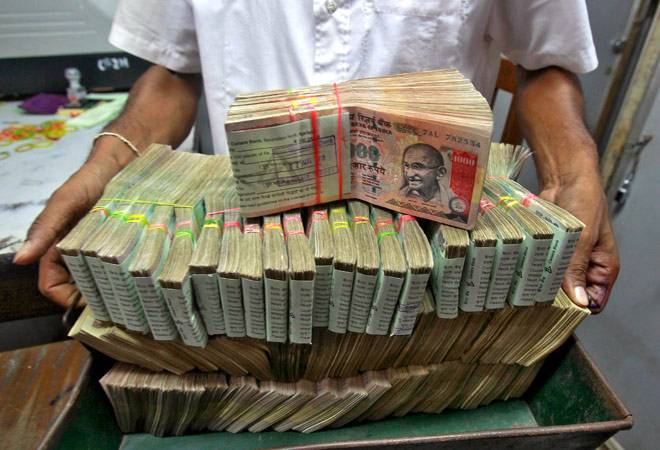Date : 29.7.2016
Cabinet clears GST Bill, all eyes on Rajya Sabha now
Cabinet clears GST Bill, all eyes on Rajya Sabha now

The Cabinet, headed by Prime Minister Narendra Modi, decided to include in the Constitutional Amendment Bill that any dispute between states and the Centre will be adjudicated by the GST Council, which will have representation from both the Centre and states.
The Cabinet on Wednesday cleared changes in the GST Constitutional Amendment Bill, dropping 1 per cent manufacturing tax and providing guarantee to compensate states for any revenue loss in the first five years of rollout of the proposed indirect tax regime.
The Cabinet, headed by Prime Minister Narendra Modi, decided to include in the Constitutional Amendment Bill that any dispute between states and the Centre will be adjudicated by the GST Council, which will have representation from both the Centre and states.
With states on board and the Cabinet approving the amendments, the government is hopeful of passage of the long-pending Goods and Services Tax (GST) Bill in the ongoing monsoon session of Parliament, which ends on August 12.
The GST Bill, with the changes approved by the Cabinet, could come up in the Rajya Sabha as early as this week, but certainly by next week.
The changes approved by the Cabinet are to the Constitutional Amendment Bill that was approved by the Lok Sabha in August last year. Once the Rajya Sabha approves the legislation, the amended Bill will have to go back to the Lok Sabha again for approval.
"The amendments to the GST Constitutional Amendment Bill have been cleared," a top official said after the meeting of the Union Cabinet chaired by Modi.
The amendments were taken up by the Cabinet after Finance Minister Arun Jaitley's assurance to state finance ministers to include in the Bill the mechanism of compensating states for all the loss of revenue for five years.
The Bill, in its present form, provides that the Centre will give 100 per cent compensation to states for first three years, 75 per cent and 50 per cent for the next two years.
However, the Select Committee of the Rajya Sabha had in its report recommended 100 per cent compensation for probable loss of revenue for five years.
As per the amendments, the Centre will now constitutionally guarantee states any loss of revenue from the GST subsuming all indirect taxes, including VAT, in the first five years of introduction.
By doing away with the 1 per cent inter-state tax over and above the GST rate, the government has met one of the three key demands over which Opposition Congress has been blocking the Bill in the Upper House.
The other demands of including GST rate in the statute and a Supreme Court judge-headed dispute resolution body has not been accepted. It remains to be seen if meeting of its demands halfway will persuade the Congress to support the legislation.
There is a talk of mentioning the GST rate in one of the two supporting legislations that need to be passed after the Constitution is amended, a move that may pacify the Congress.

The Cabinet on Wednesday cleared changes in the GST Constitutional Amendment Bill, dropping 1 per cent manufacturing tax and providing guarantee to compensate states for any revenue loss in the first five years of rollout of the proposed indirect tax regime.
The Cabinet, headed by Prime Minister Narendra Modi, decided to include in the Constitutional Amendment Bill that any dispute between states and the Centre will be adjudicated by the GST Council, which will have representation from both the Centre and states.
With states on board and the Cabinet approving the amendments, the government is hopeful of passage of the long-pending Goods and Services Tax (GST) Bill in the ongoing monsoon session of Parliament, which ends on August 12.
The GST Bill, with the changes approved by the Cabinet, could come up in the Rajya Sabha as early as this week, but certainly by next week.
The changes approved by the Cabinet are to the Constitutional Amendment Bill that was approved by the Lok Sabha in August last year. Once the Rajya Sabha approves the legislation, the amended Bill will have to go back to the Lok Sabha again for approval.
"The amendments to the GST Constitutional Amendment Bill have been cleared," a top official said after the meeting of the Union Cabinet chaired by Modi.
The amendments were taken up by the Cabinet after Finance Minister Arun Jaitley's assurance to state finance ministers to include in the Bill the mechanism of compensating states for all the loss of revenue for five years.
The Bill, in its present form, provides that the Centre will give 100 per cent compensation to states for first three years, 75 per cent and 50 per cent for the next two years.
However, the Select Committee of the Rajya Sabha had in its report recommended 100 per cent compensation for probable loss of revenue for five years.
As per the amendments, the Centre will now constitutionally guarantee states any loss of revenue from the GST subsuming all indirect taxes, including VAT, in the first five years of introduction.
By doing away with the 1 per cent inter-state tax over and above the GST rate, the government has met one of the three key demands over which Opposition Congress has been blocking the Bill in the Upper House.
The other demands of including GST rate in the statute and a Supreme Court judge-headed dispute resolution body has not been accepted. It remains to be seen if meeting of its demands halfway will persuade the Congress to support the legislation.
There is a talk of mentioning the GST rate in one of the two supporting legislations that need to be passed after the Constitution is amended, a move that may pacify the Congress.

No comments:
Post a Comment